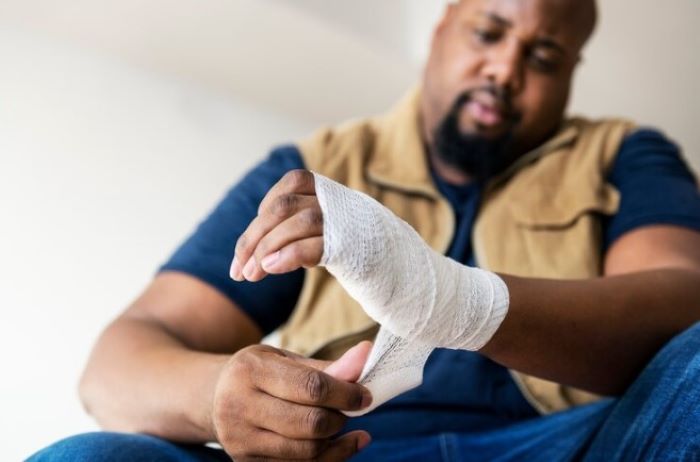Workers injured on the job primarily aim to return to work immediately. Many workers fear an extended absence could result in a permanent layoff, so their goal is to minimize absenteeism even if they’ve suffered an injury. Workers’ compensation is essential because it offers them financial support even when they cannot work. However, you must carefully plan your return to work after a workplace injury. Workers should ensure a full recovery before returning to work and follow crucial steps to make their transition back to work easier.
Returning to Work After a Workplace Injury
Returning to work after a workplace injury is a complex process. It’s about more than just showing up to work; many factors are involved, and you must understand your rights. This phase requires you to balance recovery, rehabilitation and reintegration into the workplace.
In addition, there are different scenarios involving your return to work, and they all look different.
Some workers will return to work immediately and have their full set of responsibilities restored. For some, it could mean a temporarily reduced or permanently reduced workload (for injuries requiring lifelong rehabilitation). Lastly, it could involve temporary or permanent work restrictions.
Therefore, your return to work might vary from one incident to another. For each of these scenarios, you need to carefully consider your recovery phase with the help of your doctor. These professionals can offer a better timeline of when you can go back to work and to what extent of work you can deliver. Doctors can also help decide if your injuries are considered catastrophic and that you won’t be able to return to work permanently. For this latter case, you might consider seeking total disability coverage from your employer. An experienced workers’ compensation attorney can help fight for your rights and ensure you receive the compensation you deserve.

When to Return to Work After an Injury
The next essential step for your return to work after an injury is when to do that. According to the Accident Compensation Act 1985, an employer can only require you to return to work if you are ‘well enough’ to do so.” If not, you are not obliged to return to work, and they are still required to give you a full salary for those missed days at work.
In addition, employees can pursue an occupational rehabilitation program if needed. Your employer must keep your position open for 12 months and assist you within those 12 months, especially if you sustained those injuries on the job. Considerable workplace support is essential to facilitate recovery and return to work. Some employers even assign a return-to-work coordinator to ensure the injured employee can return to work easily.
There is not one specific rule as to when is the appropriate time to return to work after a workplace injury. It varies on a case-to-case basis, specifically based on the following factors:
- Type of injury
- Extent of injury
- Pre-existing conditions
- Pain levels
- Job demands
Employees are responsible for communicating with their employees about any work-related restrictions relating to their injury, as specified by a physician. Therefore, you should know your rights and speak out to your employer if you are forced to perform tasks that you are uncomfortable with or cause pain.
Avoid the Risks of Premature Return to Work
While some employees are eager to return to work after an injury, this must be avoided. Premature return entails various risks.
First, there is the risk of re-injuring yourself. For example, if you have a broken bone due to a workplace accident, returning to work while the broken bone has not fully healed could put it at risk of being broken again. Re-aggravating your injury not only sets back your recovery process but can also extend it. Remember that your body is already vulnerable, and you could face severe consequences when you re-injure yourself.
Another reason to avoid a premature return to work is that you could acquire secondary injuries. If you restrict movements due to an injury, you might move awkwardly or use other body parts you’re unfamiliar with. Therefore, you risk acquiring a different injury if you return to work without full recovery.
Lastly, your health could have life-long implications if you don’t give your injury adequate time to heal. Your work is only temporary, but your health is not. Therefore, you should not make any compromises on the latter.

Tips for a Smooth Transition Back to Work
If you feel that you’ve fully recovered from injury and you get your doctor’s approval, here are essential tips for returning to work.
1. Stay in communication with your employer.
If you were injured at work, you must stay in contact with your employer throughout. Keep them updated on your medical progress for them to know how long you will be out of work and when they can anticipate your return. You must also stay in contact with anyone who is your direct superior at work. Keeping them in the loop reassures them of your commitment to your work and that you want to make it easier for them to adjust to work even in your absence. It also shows transparency and integrity because it shows you are not taking advantage of the situation.
Another practical benefit of communicating with your employer is that both parties will be prepared upon your return to work.
Your employer will consider your current medical condition and accommodate any restrictions that your condition entails.
2. Always listen to medical professionals.
You might feel your body is good enough to return to work because you no longer feel pain. However, you should always listen to your physician’s recommendations because they know your condition best and if you’re ready to return.
3. Consider modifying to a lighter workload.
A workplace injury can affect your confidence and mental health. Therefore, many injured employees return to work to impress their employers and co-workers. Doing this can be hazardous to your health, so you must give yourself time to slowly integrate into your work routine by having a modified or lighter workload for a safer transition and reducing strain.


